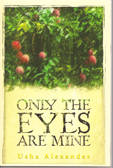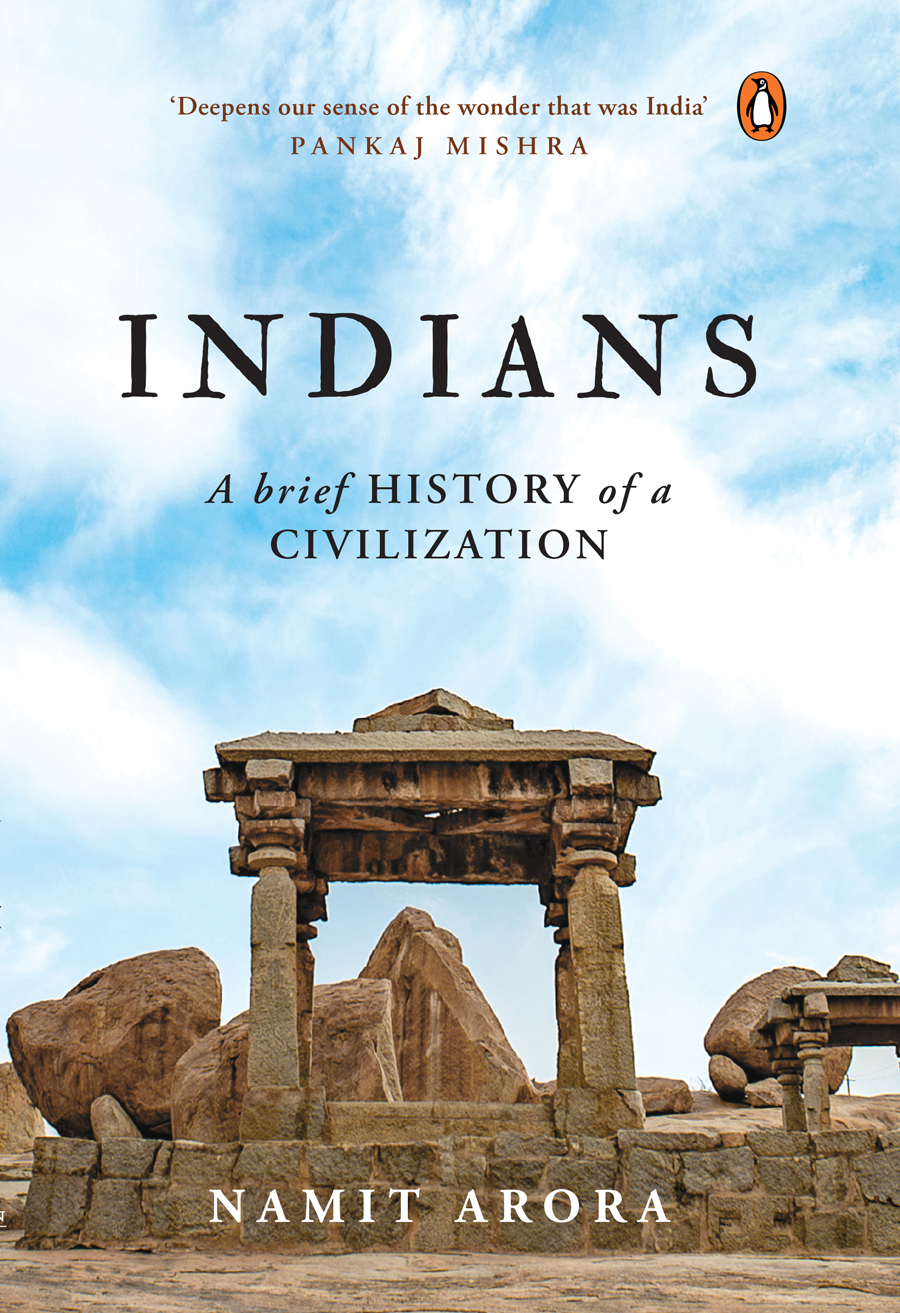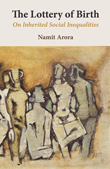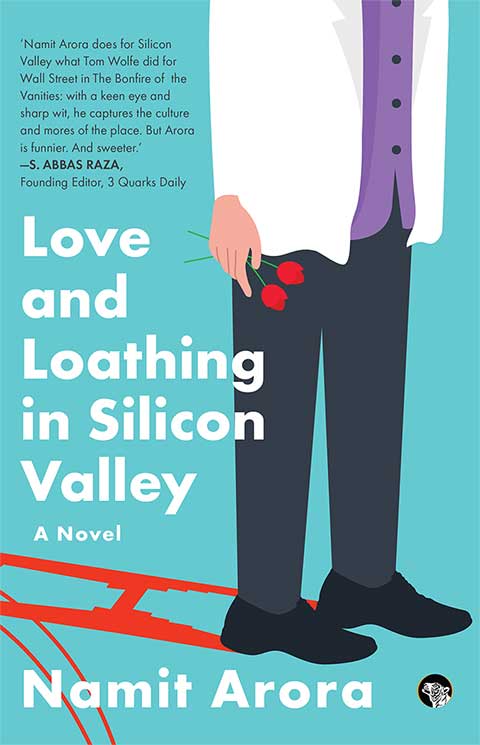| Index of articles from the Blog |
| Animals |
| Anthropology & Archaeology |
| Art & Cinema |
| Biography |
| Books & Authors |
| Culture |
| Economics |
| Environment |
| Fiction & Poetry |
| History |
| Humor |
| Justice |
| Philosophy |
| Photography |
| Politics |
| Religion |
| Science |
| Travel |
Books by
Books by
|
By Namit Arora | Oct 2013 | Comments
A review of Unclaimed Terrain, a book of short stories translated from Hindi, and a conversation with its author, Ajay Navaria.
Ajay Navaria’s Unclaimed Terrain—a collection of seven short stories translated from Hindi to English by Laura Brueck—shows from its first page how different its world is from those imagined by the Indians in Rushdie’s anthology. Navaria, a faculty member in the Hindi department in Jamia Millia Islamia, Delhi, may well be the first Dalit to teach Hindu religious scriptures at a major university. He is also the author of a novel and two books of short stories. In Unclaimed Terrain the protagonists of most stories are Dalit men who have clawed their way into the urban middle-class through their wits and education, sometimes with the help of reservations. Many harbor episodic memories of social life in ancestral villages, memories in which bigotry and abuse overwhelm kindness and beauty. They love the anonymity of the big city, even as they live in fear of being "found out" and reminded—in the artful ways of the metropolis—of their "proper place". In the story Subcontinent, for instance, the protagonist, as a boy, has seen village men abuse and assault his groveling father and grandma—returning after a stint in the city—for breaking caste taboos. As a boy, he has seen a Dalit wedding party attacked by thugs because the groom has dared to ride a horse in the village, and later that day, a woman of the party being raped: ‘I saw, beneath the white dhoti-clad bottom of a pale pandit-god, the darkened soles of someone’s feet flailing and kicking’. Rather than file a complaint, the village policeman mocks them, ‘They say she was really tasty. Lucky bitch, now she’s become pure!’ In his middle-age, the protagonist, Siddhartha Nirmal, Marketing Manager in a government enterprise in the big city, exults at the distance he has traveled in the world: 3BR flat; car; eating out at Pizza Hut and Haldiram’s, where the counter-boys call him Sir. He can hire the services of a Brahmin doctor, keep a Garhwali Brahmin driver who bows at him, and employ a Bengali music teacher he found on the Internet for his daughter, who goes to an expensive convent school. But such welcome anonymity that the city affords him disappears in familiar spaces, such as his office, which has ‘the same snakes. The same whispers, the same poison-laden smiles. Our "quota is fixed". I got promoted only because of the quota ... that’s it. Otherwise ... otherwise, maybe I’m still dirty. Still lowborn. Like Kishan, the office janitor. Like Kardam, the clerk. Because I am their caste.’ Yes Sir, the most delightful story in this collection, presents a historic role reversal in a government office. Narottam, a Dalit, has risen to become Deputy General Manager and has inherited as his peon an older Brahmin man, Tiwari. Narottam has picked up all the haughtiness of the office babu class towards subordinates. He is patronizing and sometimes rude to Tiwari, who burns with resentment and inwardly swears at him—even organizes Satyanarayan puja to get rid of him and considers polluting Narottam’s coffee with his spit—but his need for a job and Narottam’s place in the office hierarchy keep him in check, leading to a brilliantly comical end. In New Custom, an urban middle-class Dalit arrives in a village to attend a wedding. At the bus stand, a chai-seller, impressed by his demeanor and attire, takes him to be a Thakur, i.e., high-caste, and treats him with deference. When the truth is indirectly revealed, the deference turns into rudeness. The chai-seller asks him to rinse his glass before returning it. In a powerful scene, the visitor buys the glass and smashes it on a stone platform. The story Sacrifice sensitively depicts the emotions of a boy who had to help his father slaughter Piloo, a kid goat he loves. As an adult, the protagonist, a Dalit Ambedkarite, recoils from and confronts his father’s prejudice against the protagonist’s wife, who is from a caste even lower than theirs. A death at home and revelations of a romantic affair in father’s youth bring hope for mutual understanding. In Scream, a Dalit schoolboy is raped by a Patel boy in the village. He escapes to Mumbai, does sundry jobs, tastes the intoxication of money, and ends up working as a gigolo, even as he pursues an MA and prepares for the civil services exam. Now wealthy, he visits his village, donning a fat gold chain and two gold rings. Coming face to face with the boy who sodomized him, he gloats: He ‘couldn't even speak. He couldn’t even smile. Next to me, he seemed like a beggar. I saw the defeat in his eyes.’ Back in Mumbai, his life twists and turns with two of his female clients, through scenes evoking vintage film noir, until he meets a harrowing end. Navaria is deeply political but rarely simplistic. There is truth in his fiction, the kind that’s best revealed in storytelling. He has a keen eye for hypocrisies that lurk in Indian hearts, across caste and class locations. His Dalits are flesh-and-blood humans: sympathetic because flawed, not nobler than others, not above ordinary vanities and prejudices. They love and suffer and do what it takes to survive their often-hostile situations. Nor are his upper-caste characters black and white. Unclaimed Terrain offers sharp vignettes of the psyche of urban North India, from a vantage point that’s both new and indispensable—and largely missing from the work of Indians who think and write in English. §
How did he end up teaching Hindu religious scriptures (HRS)? His interest began early, with Amar Chitra Katha comics, and grew organically. Reading Ambedkar’s analyses of HRS further fueled his interest and he began spending time in a library to learn more. How critical is he of the scriptures in the classroom? He follows an ‘analytical approach’, he says, orienting his mostly-savarna students to the basic content and social context of the Vedas, Upanishads, Puranas, Gita, Ramayana, etc. Does he not feel anger at all the caste biases in these scriptures? No, he says, because anger at such biases doesn’t help in any concrete way. He keeps his Dalit activism separate from his teaching, though he does mention some alternative interpretations to his students. ‘I have to choose my battles,’ he says. Despite his restrained approach, fierce debates sometimes erupt in his class, often with students choosing sides along caste lines. Inevitably, someone raises the issue of reservations and tempers really flare up; he then has to manage and pacify both sides. He mentions with evident pride that his students, knowing full well that he is Dalit, nevertheless love him. Some even walk up to him on campus and touch his feet, which he dislikes and discourages. Is the future of Hindi bleak, I ask, what with the urban middle-class savarnas chasing English en masse? He demurs and calls this an exaggerated fear. He believes this class’s median English proficiency is still very poor but, he says, it’s quite true that they are disinvesting in Hindi because it is no longer aligned with social power structures, higher class aspirations, or good jobs—‘a 10th-pass who speaks English has better job prospects than an MA who doesn't’. However, another demographic shift is happening. In North India, a vast new generation is coming into literacy for the first time, and it is doing so in Hindi. This will probably go on for decades, and like new entrants everywhere, they will take Hindi language and literature to new places—the linguistic counterpart of the changes that the rise of the lower castes has brought into politics. He is hopeful that these new entrants, and their more self-confident, middle-class descendants, will not only evolve Hindi but also other hybrid cultural forms that emphasize their own creative traditions, much like African-Americans have done. It’s only later that I reflect on Navaria’s optimism. Why wouldn’t the future middle-classes continue to migrate to English like the current middle-classes? What else would have to change for them to abandon their sense of hierarchy, including among languages?
In his fictional themes, he says, he tries to hew close to the larger experiences of Dalits. He tells me about two harsh incidents in these stories that come from his own life. His primary readership has been more Dalit than non-Dalit, but Unclaimed Terrain has brought him both national and global visibility. ‘Power of English!’ he notes. He likes the translation and is grateful to Laura Brueck, and to S. Anand at Navayana, his supportive publisher. Who are his key literary influences? Bhisham Sahni, Nirmal Verma, Uday Prakash, Kamaleshwar, and Rajendra Yadav (a patron who has also given him opportunities with the literary magazine HANS). Also Chekhov and Pushkin. He is drawn to literary works that explore the inner lives of individuals: how they shape, and are shaped by, their social milieus.
I ask what he’s working on nowadays. Two novels and a couple of short stories, alongside teaching three courses each weekday, grading, and preparing for conferences. His early-teen kids also demand his time. He has persuaded them to give up TV, he says cheerfully. Instead, they watch two movies each week. They just saw the Hollywood movie Oblivion. The boy is in a Bruce Lee phase and enjoys playing the guitar; the girl paints. They understand that this is the time to explore their talents. He wants to write a novel focusing on the unique challenges of Dalit middle-class urban kids, something that’s going to be increasingly relevant. But then he sighs: ‘will I ever have time for that?’
|
Designed in collaboration with Vitalect, Inc. All rights reserved. |
|








